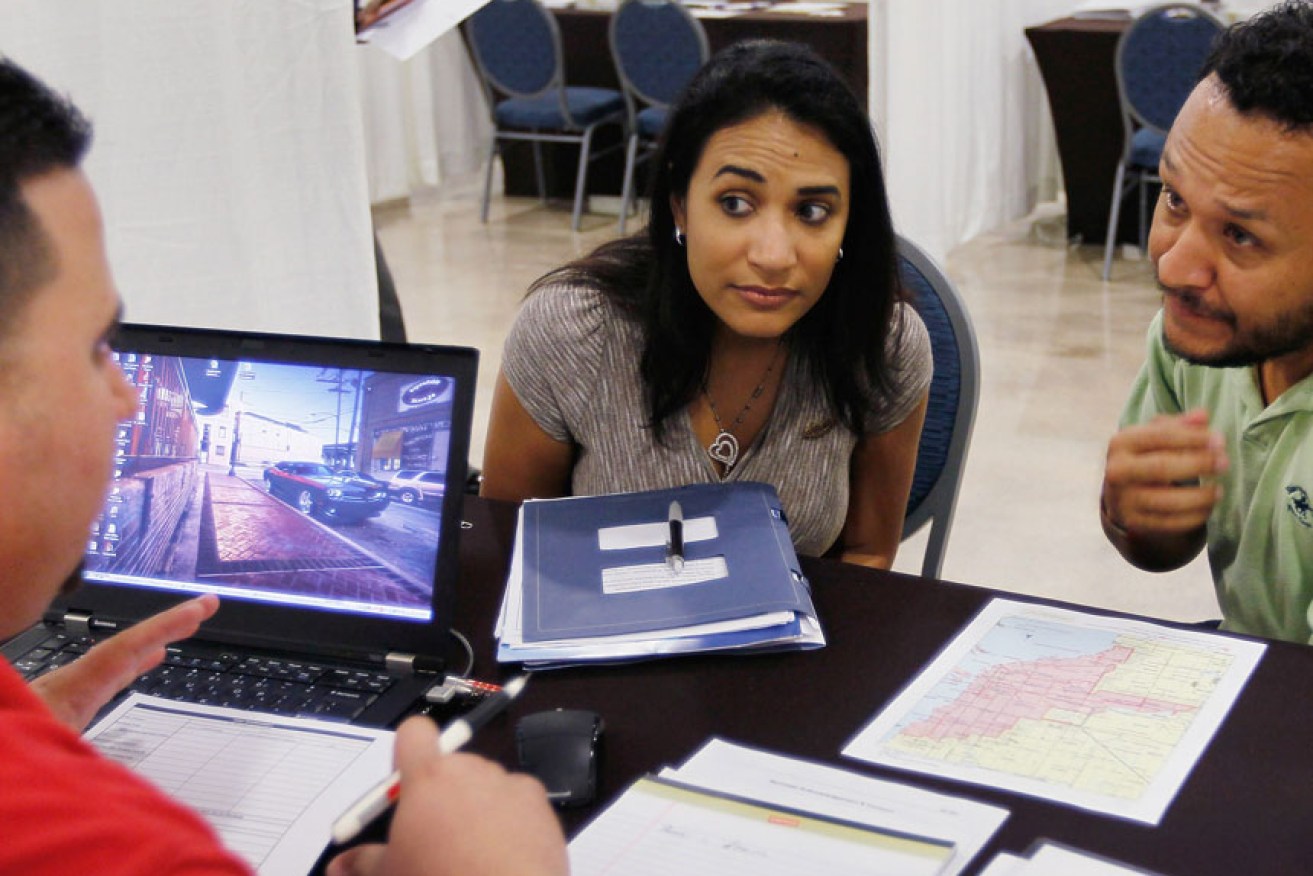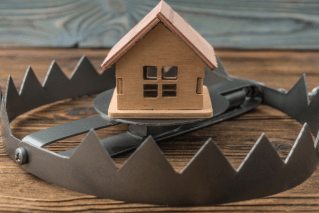Your 10-point plan for buying your first home


Buying your first home can be daunting, with several legal, financial and logistical matters to sort out before you finally take possession of your new place. Here we outline 10 critical steps to getting that first set of house keys that you can call your own.
1. Decide what you want in a home
Be clear as to what you are looking for. Is it an investment for capital growth? A place to have a family? Somewhere you can put on the rental market a couple of years down the track?
“Knowing what you want in a property before you start can save you a lot of time,” Real Estate Institute of Australia president Peter Bushby says. “If you set yourself clear criteria, you will find searching for a property much easier as you will be able to eliminate properties immediately that do not suit your needs.
“Real estate agent offices, real estate industry magazines, home ideas and lifestyle programs and real estate websites on the Internet are the main ways to search for potential properties.”
2. Save, save, save
While a bank or financial institution will in most cases provide the bulk of the finance for your new home, you will at least have to come up with a substantial deposit – probably somewhere between five per cent and 20 per cent. This means creating a savings plan.
“If you don’t have a sufficient deposit, set up a savings plan and put your savings in a high interest savings account,” says ME Bank group executive sales Ian Hendey.
“First home saver accounts receive an annual contribution of up to $1020 from the federal government, plus a high interest rate on savings,” he says.
“Be mindful, you need to save in four financial years before you can use the money for a home deposit.”
National Australia Bank general manager consumer lending Melissa Reynolds says you typically need to save at least 10 per cent Loan to Value Ratio (LVR).
“It’s worth considering saving 20 per cent or more as most lenders will require you to purchase mortgage lenders’ insurance for lesser deposits to safeguard against any possible default,” said Ms Reynolds.
3. Secure finance
Get finance pre-approved early. This will ensure you know how much you can afford to spend and then will be sure you are looking at properties within your price range. Or it may mean that you will negotiate a bit harder based on the amount you are pre-approved to spend. According to the REIA, it’s best to confirm your financial institution or bank and the amount they’re willing to lend.
“Don’t forget that (variable) home loan interest rates move up and down, so you need to have a bit of leeway to cope if this happens,” the REIA states.
NAB’s Ms Reynolds says there are many different loans available, so you need to get one appropriate to your individual needs.
“There are low-cost, online-based home loans that provide you with a good interest rate, but not much else,” she says. “If you want to get more value out of your home loan than just a great rate, then package loans will provide you with other products such as an offset account and a credit card.”
4. Settle on a budget
REIA’s Mr Bushby advises first-time buyers to decide on the type of property and the location they want as a next step.
“Inner and middle suburbs are more expensive compared to the outer suburbs; however, their higher density dwellings may be attractive to those first home buyers, who prioritise on the location rather than on the size of the block,” Mr Bushby says.
“Once the budget is set and the location and the type of the property are chosen, various sources may help find a property.”
5. Inspect the property
This might sound obvious, but it is nonetheless important. Of course, you need to decide if you like the place – but you must also be on the lookout for potential ‘gremlins’. In fact, you should be prepared to visit several times.
“You may need to inspect the property more than once before making your final decision,” the REIA states.
Consumer Affairs Victoria recommends taking a pen and paper and making notes if you are looking at several properties in the one day.
“If the property has been renovated or extended, check the vendor’s statement and contact the local council to find out whether relevant planning or building permits were obtained,” CAV states. “Any illegal alterations may become your responsibility once you sign the contract of sale.”
6. Do your homework and engage experts
This can seem fiddly but, again, it can save your grief in the long term.
“In preparation to buy, prospective first home buyers need to do some homework, including inspecting the property and assessing it against their criteria,” Mr Bushby says.
“You need to engage a builder or architect to assess whether there are any defects that might affect the decision to buy.
“Also consider talking to builders who are putting up houses in the areas you have shortlisted, as they may know of new properties for sale or the value of properties in the area.”
A pest inspection is a good idea in case there is an issue with things like termites, rats or other vermin.
7. Get legal advice before signing anything
Always obtain legal advice before you sign a contract. Property lawyer at PCL Lawyers in Melbourne, Glenn Duker, says the vendor’s special conditions sometimes can be onerous and costly to you later if not thought through at the start.
“You are entering into a legally-binding contract for what is probably your largest ever purchase,” Mr Duker says. “Many vendors will agree to delete such conditions during the negotiation process if asked to do so.”
The Vendor’s Statement outlines many critical things about the property, such as matters pertaining to the title, the ongoing cost of the rates and other outgoings, whether there are caveats on the property, whether there are planning restrictions on the property or whether there have been building works which required a permit.
8. Check out first home owner concessions
Many states and territories have stamp duty concessions for first home buyers.
“There is presently a significant stamp duty concession for first home buyers provided the property is not more than $600,000,” Mr Duker says.
“This is a very helpful discount when you are getting into the market for the first time. To be eligible, you must move in within 12 months of settlement and then live in the property continuously for at least 12 months.”
The REIA says states and territories have different incentives to help first home buyers enter the market. It’s best to check your eligibility by contacting the revenue office in your state or territory.
Ms Reynolds advises that it’s best to check the rules before setting a savings goal.
“In some cases, there may be a government grant available for purchasing a new home, in others there will be discounts on stamp duty, so it’s a good idea to find out where you stand before you set your savings goal,” she says.
9. Do you need your own special conditions included in the contract?
It may be advantageous to have special conditions included in your sale contract.
“For instance, you may want to make the purchase subject to a building and pest inspection or subject to the vendor carrying out additional works,” Mr Duker says.
“You can pick up some great ‘value adds’ if you can convince the vendor to do some repairs, where necessary, or even leave something of value behind.
“These things can be catered for in the special conditions. Always get these drafted by a lawyer – agents these days are not supposed to draft special conditions and you want such conditions them to be watertight if you need to rely on them later.”
10. Check ‘cooling off’ laws
Ian Hendey says it’s a good idea to determine the so-called ‘cooling off’ period within your state.
“Once you’ve made an offer and it’s been accepted, try to finalise everything within the cooling off period so if there’s anything awry you have a way out,” he says.
“Once you’ve paid your deposit and the cooling off period has ended, apply for your FHOG.” Your solicitor should be able to help you with this. It also might be an idea to look up an expert from the Australian Institute of Conveyors.








